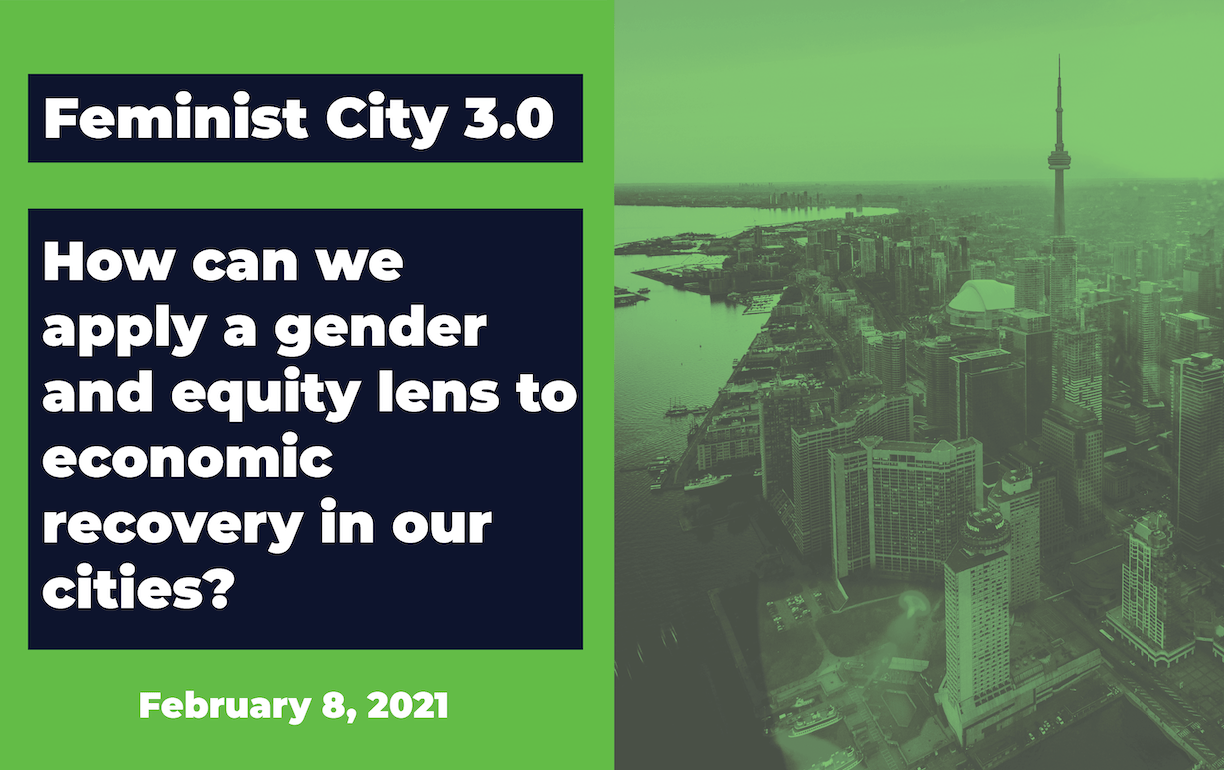Topic: Feminist City 3.0: How can we apply a gender and equity lens to economic recovery in our cities?
Wanting to further explore questions of gender and equity in the economic recovery of our cities, GATE along with the University of Toronto’s School of Cities, co-hosted the third event in the popular Feminist City series.
COVID-19 has exacerbated many pre-existing problems in society such as poverty, lack of affordable housing, and unemployment. As a result, the pandemic has highlighted intersecting crises related to homelessness, mental health, and physical safety in our cities. We discussed these problems with Brittany Andrew-Amofah, Manager, Policy & Research, Federation of Canadian Municipalities, Jasmine Ramze Rezaee, Director of Advocacy & Communications at YWCA Toronto, Dr. Suzanne Stewart, Director of the Waakebiness-Bryce Institute for Indigenous Health at the Dalla Lana School of Public Health at the University of Toronto (U of T), where she is an Associate Professor in the Division of Social and Behaviour Health Sciences.
They highlighted some key issues that will be important to consider as cities recover from the pandemic:
- The homelessness and housing crisis is not equally experienced and disproportionately affects those from low-income locations.
- In Toronto, approximately 30-40% of the homeless population is Indigenous with a large portion being women.
- Mental health services are often inaccessible to those from low-income backgrounds and are underfunded.
- Care work is systemically undervalued in our societies, despite research showing how vital care work is for our economy. As a result, people are leaving the care economy workforce in large numbers.
“A fair and just economic recovery involves a green recovery, a feminist recovery, and an economic recovery that looks at the needs of various municipalities across the country. We need to ensure that we incorporate good urban planning policies into the cities we build and re-build”
– Brittany Andrew-Amofah
Watch our panel of experts discuss what it means to ‘build back better’, essential workers, and mental health.




